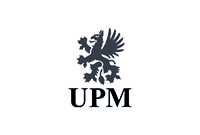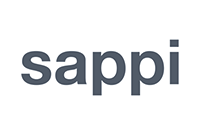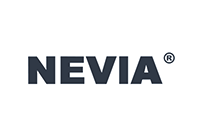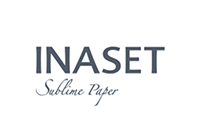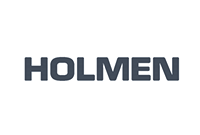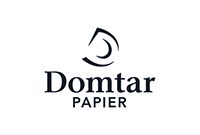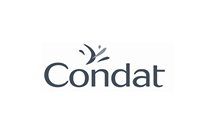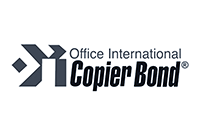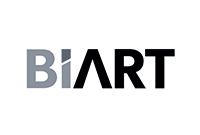
HUMAN RESOURCES POLICY
AFMPACK’s human resources policy aims to create a high-performing, development-focused workforce that reflects a single AFMPACK spirit, exhibiting strong and effective leadership in all areas, fostering a company culture and commitment that recognizes and contributes to the future of AFMPACK, where each employee can showcase their potential and feel valued.
In line with this goal, we adopt and develop fair, transparent, and integrated practices in three main areas to attract, develop, and retain the most valuable talents according to global human resources trends. This approach accelerates our steps towards becoming the preferred employer and the best workplace. At AFMPACK, human resources work as a strategic business partner with all units, continuously analyzing company and employee needs, creating value, and rapidly adapting to changing conditions.
Talent Acquisition Process
Starting from AFMPACK’s vision, mission, and values, all recruitment tools are effectively utilized to place the most accurate and competent candidates in current positions. Primary recruitment sources include AFMPACK’s own website, which announces open positions and allows job applications, as well as alternative recruitment sources like career.net, LinkedIn, etc.
Our recruitment process includes competency-based interviews, potential analysis, technical interviews, talent assessments, and for some positions, foreign language proficiency is inquired.
Talent Management Process
In the performance management system implemented at AFMPACK, corporate and functional success indicators are set at the beginning of each year and broken down from top to bottom within a certain model framework to align the entire company with the same goals.
While achieving these goals, not only what is done but how it is done is focused on, and a competency framework consisting of basic, functional, and managerial competencies is constructed and included in the performance management system to track behaviors that nourish the company culture.
A performance management system is implemented where high performance is sustainable, successful performance is rewarded, development-ready performance is enhanced with development programs, and the results are integrated with other human resources systems.
Additionally, potential assessment, succession, rotation, and career mapping activities are conducted to evaluate and develop the potentials within current roles of our employees and to support them with development opportunities.
A roughly year-long “Leadership Development Program” is applied to ensure that our employees in managerial and higher positions adopt a leadership understanding consistent with corporate values. 360-degree assessments are conducted throughout the year to support our employees’ development, and they are supported with the “Evaluation and Development Center” application based on assessment feedback.
Within the AFMPACK Academy, Professional Development Programs, Technical Training School and Simulations, Competency Development Programs are implemented. In line with the needs of our employees, internal coaching and mentoring practices are also carried out, and internal mentors and coaches are trained from our voluntary employees.
Retention Process
Thanks to the strong corporate culture shared and lived by all employees since the establishment of AFMPACK, increasing employee engagement and making it sustainable is one of the most important building blocks of our retention process. World, country, and industry trends are followed in compensation and benefits packages, and a corresponding compensation policy is implemented. A reward system is used that appreciates and rewards the behaviors and professional efforts that create added value by our employees.
Working hours that preserve the work-life balance of our employees are adopted, and productive work is supported. The internal candidate evaluation process is actively operated for open positions. An interdepartmental rotation program is also implemented for the development of employees.
A structured onboarding and orientation program is implemented within the framework of the job adaptation program for new hires and job changes.
There is no discrimination in the company, and to date, there have been no complaints from any of our employees on this matter.
Protection of Personal Data
The personal data of all employees is protected within the scope of KVKK.
ETI Base Code Conditions
This document was amended on April 1, 2014, with changes applied to Article 6 regarding excessive working hours.
Employees are chosen according to their free will.
Forced or compulsory labor, or prisoner labor provided outside of their free will, cannot be used.
Employers cannot seize any debts from workers as “collateral” or demand the surrender of their identity documents and are free to terminate their employment relationship with the employer after a reasonable notice period, according to their free will.
Unions and the right to collective bargaining are recognized.
All workers have the right to join or form a worker’s union and to bargain collectively according to their choice, without discrimination.
The employer exhibits an open-minded approach towards the activities and organizational effectiveness of worker’s unions.
No discrimination against worker representatives is allowed, and they have access permissions to the workplace to fulfill their representation functions and duties.
Where unions and the right to collective bargaining are restricted by law, the development of parallel practices for independent and free union and collective bargaining by the employer is facilitated and not hindered.
Working Conditions must be safe and healthy
A safe and healthy working environment will be provided, taking into account general information in the industrial field and all types of specific hazards related to the job. Appropriate measures will be taken to prevent accidents and injuries and to minimize health risks specific to the working environment to the lowest possible level.
Workers will regularly receive health and safety training, and such training will be repeated for workers starting or assigned to a new role.
Access to clean toilets and drinking water will be provided, and if applicable, sanitary facilities for the preservation of food packaging materials will be provided.
If accommodation is provided, it will be clean, safe, and arranged to meet the basic needs of the workers.
The company considering these base code conditions will appoint a senior management representative as the health and safety officer.
Child labor is not used
No new child worker will be employed.
As defined in the annexes of this document as “child” and “child labor,” for each boy or girl found to be employed as child labor until the end of their childhood, the company will develop necessary policies and programs or support existing practices to place these children in good-quality educational institutions and ensure their graduation.
Children and young people under the age of 18 will not be employed in night work or under hazardous conditions.
These principles and procedures will be in accordance with the conditions and rules in the relevant standards of the International Labour Organization (ILO).
A living wage is paid
The wage and benefits paid for a standard working week must be at least the official national standards or the indicative standards in the industry, whichever is higher. In all cases, wages must always be sufficient to meet the basic needs of workers and allow for some discretionary additional expenses.
All workers will be provided with written and easily understandable information about their wage conditions before starting work and the details of their wages for each payment period they receive.
Wage deductions as a disciplinary penalty cannot be applied or any deductions from wages cannot be made without the clear and explicit consent of the relevant worker, unless required by national laws and regulations. All disciplinary penalties must be recorded.
Working hours must not be excessive
Working hours must comply with national laws, collective bargaining agreements, and the conditions specified in Article 6.6 below, whichever provides more free time for workers.
Working hours, excluding overtime, will be contractually defined and the total weekly working hours will not exceed 48 hours.*
All overtime work will be voluntary and carried out with the principle of free will. Overtime work will only be implemented considering the following: The total daily working time for each worker individually and the total workforce, how often they work overtime, and how many hours they work overtime. Overtime work should never be used as an alternative to the employment of regular required labor. Overtime work will always be remunerated with a recommended bonus payment not less than 125% of the normal routine payment value.
Outside of the special circumstances specified in Article 6.5 below, the total working hours within any seven-day period will not exceed 60 hours.
However, in special circumstances where the following conditions are met, the total working hours within any seven-day period may exceed 60 hours:
Permission for such practice according to national laws;
Permission for such practice according to collective bargaining agreement with the worker’s union representing a significant part of the workforce, made with free will;
Taking all necessary measures to protect the health and safety of workers;
The employer can prove that such exceptional overtime work is necessary due to unexpected production increases, accidents, or emergencies.
Workers will be given at least one day off within each seven-day period, or if allowed by the relevant national law, two days off within each 14-day period.
International standards recommend gradually reducing the total normal weekly working hours to 40 hours without any reduction in wages as the working hours decrease.
No discrimination is practiced
No one will be discriminated against in hiring practices, payments, participation in training services, promotion practices, termination or retirement processes based on race, nationality, social class, religion, age, disability status, gender, marital status, sexual preference, union membership, or political affiliations.
Regular employment is provided
The job performed will be based on a valid employment relationship established in every aspect according to national law and practice.
The employer must fulfill the obligations towards their employees arising from the regular employment relationship under the labor or social security laws and regulations, and cannot evade these obligations by using only contractual labor or labor obtained from a contractor firm or home-working arrangements, or through apprenticeship training practices that do not actually intend to develop skills or provide regular employment, or by excessively using fixed-term employment contracts.
No harsh or inhumane treatment is allowed
The application of physical violence or disciplinary punishment, the threat of physical violence, sexual abuse or other harassing behavior, verbal harassment, or any other form of intimidation or bullying is strictly forbidden.
The provisions specified under these terms and conditions are minimum, not maximum, standards and should never be used to prevent companies from exceeding these standards. Companies applying these terms and conditions are expected to comply with national laws and other existing regulations, and in cases where both legal provisions and these base code conditions contain provisions on the same subject, the one that provides more protection for worker rights is expected to be preferred.
Note: We have made every effort to ensure that the translations of the ETI Base Code and Implementation Principles are as complete and accurate as possible. However, please be reminded that the documents in the English language should always be considered the official version.
Have Any Questions?
You can promptly receive answers to your inquiries by contacting our expert customer service representatives. We are eagerly awaiting the opportunity to communicate with you.
